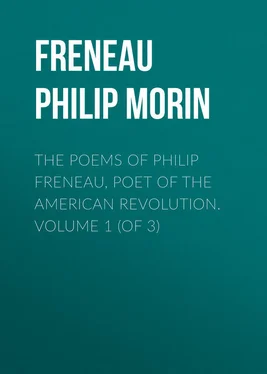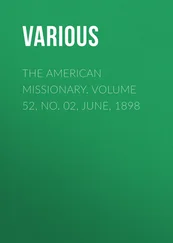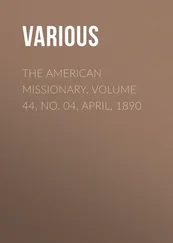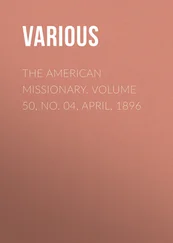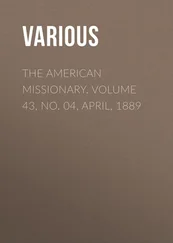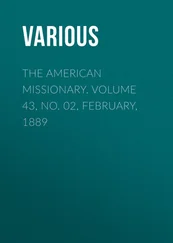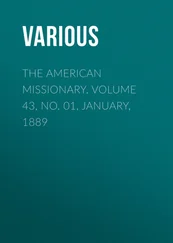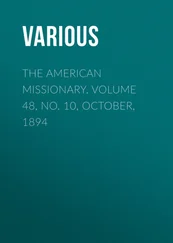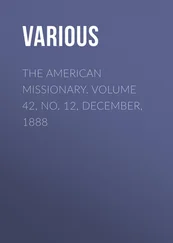Philip Freneau - The Poems of Philip Freneau, Poet of the American Revolution. Volume 1 (of 3)
Здесь есть возможность читать онлайн «Philip Freneau - The Poems of Philip Freneau, Poet of the American Revolution. Volume 1 (of 3)» — ознакомительный отрывок электронной книги совершенно бесплатно, а после прочтения отрывка купить полную версию. В некоторых случаях можно слушать аудио, скачать через торрент в формате fb2 и присутствует краткое содержание. Жанр: Поэзия, foreign_antique, foreign_prose, foreign_poetry, на английском языке. Описание произведения, (предисловие) а так же отзывы посетителей доступны на портале библиотеки ЛибКат.
- Название:The Poems of Philip Freneau, Poet of the American Revolution. Volume 1 (of 3)
- Автор:
- Жанр:
- Год:неизвестен
- ISBN:нет данных
- Рейтинг книги:4 / 5. Голосов: 1
-
Избранное:Добавить в избранное
- Отзывы:
-
Ваша оценка:
- 80
- 1
- 2
- 3
- 4
- 5
The Poems of Philip Freneau, Poet of the American Revolution. Volume 1 (of 3): краткое содержание, описание и аннотация
Предлагаем к чтению аннотацию, описание, краткое содержание или предисловие (зависит от того, что написал сам автор книги «The Poems of Philip Freneau, Poet of the American Revolution. Volume 1 (of 3)»). Если вы не нашли необходимую информацию о книге — напишите в комментариях, мы постараемся отыскать её.
The Poems of Philip Freneau, Poet of the American Revolution. Volume 1 (of 3) — читать онлайн ознакомительный отрывок
Ниже представлен текст книги, разбитый по страницам. Система сохранения места последней прочитанной страницы, позволяет с удобством читать онлайн бесплатно книгу «The Poems of Philip Freneau, Poet of the American Revolution. Volume 1 (of 3)», без необходимости каждый раз заново искать на чём Вы остановились. Поставьте закладку, и сможете в любой момент перейти на страницу, на которой закончили чтение.
Интервал:
Закладка:
Philip Morin Freneau
The Poems of Philip Freneau, Poet of the American Revolution. Volume 1 (of 3)
PREFACE
The present edition of the poetical works of Philip Freneau was begun at the advice of the late lamented Moses Coit Tyler. In his opinion there were few fields in American history that needed exploring more, and few that would require on the part of the explorer more of the Columbus spirit.
It would be almost impossible for a poet to pass more completely into the shadow than has Freneau during the century since his activities closed. His poems are, almost all of them in their earliest editions, exceedingly rare and costly and only to be read by those who can have access to the largest libraries, his letters and papers have almost entirely disappeared, and his biography in almost every book of reference has been so distorted by misstatement and omission as to be really grotesque.
This neglect has resulted not from lack of real worth in the man, but from prejudices born during one of the most bitter and stormy eras of partisan politics that America has ever known. What Sidney Smith said of Scotland at this period was true here: "The principles of the French Revolution were fully afloat and it is impossible to conceive a more violent and agitated state of society." Freneau was a victim of this intense era. New England rejected him with scorn and all admirers of Washington echoed his epithet, "that rascal Freneau." Thus it has become the tradition to belittle his work, to vilify his character, and to sum up his whole career, as a prominent New Englander has recently done, by alluding to him as a "creature of the opposition."
Unprejudiced criticism, however, has always exalted Freneau's work. The great Scotch dictator Jeffrey, with all his scorn for American literature, could say that "the time would arrive when his poetry, like that of Hudibras, would command a commentator like Gray;" and Sir Walter Scott once declared that "Eutaw Springs [was] as fine a thing as there is of the kind in the language." E. A. Duyckinck did not hesitate to group him as one of "four of the most original writers whom the country has produced," and S. G. W. Benjamin could say in 1887: "In all the history of American letters, or of the United States press, there is no figure more interesting or remarkable, no career more versatile and varied than that of Philip Freneau." Such testimony might be multiplied. Surely had the poet been an ordinary man, Jefferson would never have said "his paper has saved our Constitution," Madison would not have pronounced him a man of genius, and Adams would hardly have admitted that he was a leading element in his defeat.
I have endeavored not only to rescue the most significant of Freneau's poems, but to arrange them as far as possible in their order of composition, or at least in the order in which they first appeared in print. It has seemed to me highly important to do this since such an arrangement, especially with a poet like Freneau, who drew his themes almost wholly from the range of his own observation, would be virtually an autobiography, and since it would also furnish a running commentary upon the history of a stirring period in our annals. The task has been no slight one. It has necessitated a search through the files of a large proportion of the early newspapers and periodicals and a minute investigation of every other source of possible information.
Much material has been rescued that, as far as the public was concerned, had practically become extinct. I have introduced the unique fragment of an unpublished drama, "The Spy," which I was the first to explore. I have taken pains to reproduce the poet's early poetical pamphlets dealing with the first year of the Revolution, not one of which has ever been republished. The revisions of many of these used by Freneau in his later collections were so thoroughgoing as to be in reality entirely new poems. "The Voyage to Boston," for instance, published during the siege of Boston, was cut down for the 1786 edition from six hundred and five lines to three hundred and six lines, and of these more than half were entirely changed. From the standpoint of the historian, at least, the original version is much more valuable than that made several years after the war was over. This is true of all the earlier pamphlet poems. Aside from their value as specimens of Freneau's earlier muse they are valuable commentaries on the history of the stormy times that called them forth, and I have not hesitated to reprint them verbatim in connection with the revised versions. The pamphlet poems "American Liberty" and "General Gage's Confession," (until recently supposed to have been lost) exist only in unique copies. Freneau never attempted to revise them. Some of the other early poems, notably "The House of Night," I have annotated with care, showing the evolution of the poem from its first nucleus to its final fragmentary form. In the case of a few of the more important poems, especially those dealing with the Revolution, I have given variorum readings.
Aside from this early material, which has a real historical value, I have introduced very few poems not included in Freneau's collected editions of 1786, 1788, 1795, 1809 and 1815. Previous to 1795 the poet reprinted with miserly care almost all the verses which he had contributed to the press. In his later years he was more prodigal of his creations. I have, however, reprinted from newspapers very few poems not found elsewhere, and these few only on the best evidence that they were genuine, for it has been my experience that when a poem is not to be found in the collected editions of the poet it is almost certain that it is not genuine. In justice to Freneau, who had the welfare of his writings much at heart, and who cut and pruned and remodeled with tireless hand, I have usually given the latest version.
I wish to acknowledge here my great indebtedness to the descendants of Philip Freneau, especially Miss Adele M. Sweeney, Mr. Weymer J. Mills, Mrs. Helen K. Vreeland, and Mrs. Eleanor F. Noël, who have allowed me to consult freely all the papers and literary remains of the poet and have supplied me with all possible information. I would also express my great obligation to many librarians, collectors, and scholars, who have cheerfully aided me, especially to Mr. Wilberforce Eames, of the New York Public Library, the late Paul Leicester Ford, Mr. Robert H. Kelby, of the New York Historical Society, Mr. John W. Jordan, of the Pennsylvania Historical Society, Mr. A. S. Salley, Jr., of Charleston, S. C., Mr. E. M. Barton, of the American Antiquarian Society, and Dr. E. C. Richardson, of Princeton University, who with their courteous helpfulness have made possible the work. I wish also to express my thanks to Professor A. Howry Espenshade, and Mr. John Rogers Williams, to whose careful and patient work upon the proofs the accuracy of the text depends.
F. L. P.State College, Pa., Sept. 19, 1902.
LIFE OF PHILIP FRENEAU
1752-1832
LIFE OF PHILIP FRENEAU
I
In the possession of the Freneau descendants there is an old French Bible, printed in Geneva, Switzerland, in 1587, which preserves an unbroken roll of the heads of the family back to the original owner of the book, Philip Fresneau, who on his death-bed in La Chapelle, France, in 1590, gave it into the hands of his eldest son. For five generations the book remained in the little suburban village, its possessors sturdy, industrious tradesmen, who stood high in the esteem of their community and yet who on account of their Protestant faith were often imposed upon and at times even persecuted. It was doubtless this feeling of insecurity, if not positive persecution, which compelled André Fresneau, like so many of his fellow Huguenots, to leave his native village and to seek a home in a more tolerant land.
Читать дальшеИнтервал:
Закладка:
Похожие книги на «The Poems of Philip Freneau, Poet of the American Revolution. Volume 1 (of 3)»
Представляем Вашему вниманию похожие книги на «The Poems of Philip Freneau, Poet of the American Revolution. Volume 1 (of 3)» списком для выбора. Мы отобрали схожую по названию и смыслу литературу в надежде предоставить читателям больше вариантов отыскать новые, интересные, ещё непрочитанные произведения.
Обсуждение, отзывы о книге «The Poems of Philip Freneau, Poet of the American Revolution. Volume 1 (of 3)» и просто собственные мнения читателей. Оставьте ваши комментарии, напишите, что Вы думаете о произведении, его смысле или главных героях. Укажите что конкретно понравилось, а что нет, и почему Вы так считаете.
